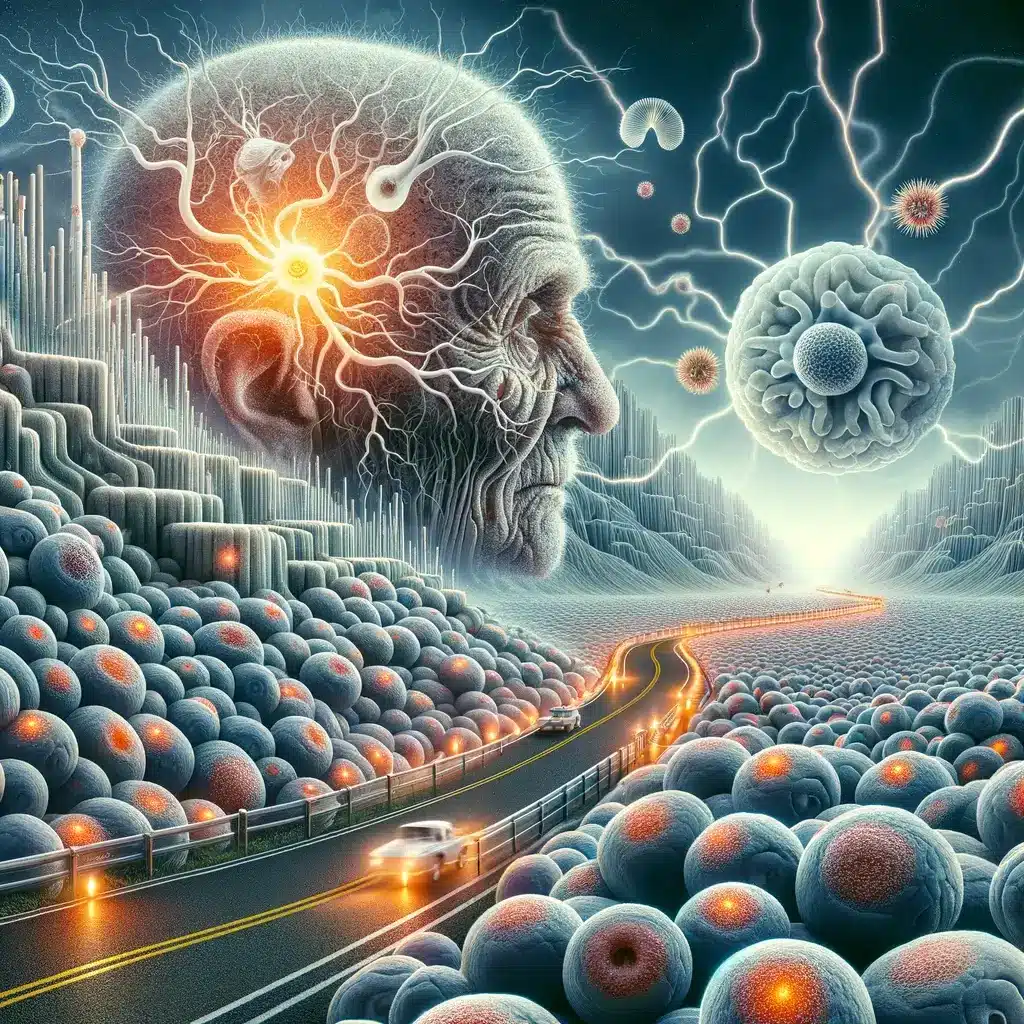Dutch researchers found that this process happens all the time and damages all genes, but the longer the genes, the more likely they are to be damaged because they have more sites. Especially the great damage is to nerve cells due to their inability to regenerate

Aging may be less about specific "aging genes" and more about how long the gene will be around. Many of the changes associated with aging may occur due to reduced expression of long genes, say researchers in an opinion article published March 21 in the journal Trends in Genetics. A decrease in long gene expression with age has been observed in a wide variety of animals, from worms to humans, in various human cell and tissue types, and also in people with neurodegenerative diseases. Experiments on mice show that the phenomenon can be mitigated using known anti-aging factors, including dietary restriction.
"If you ask me, this is the main cause of systemic aging throughout the body," says Jan Hoeijmakers of the Erasmus University Medical Center, Rotterdam; University of Cologne; and Oncode Institute / Princess Maxima Institute, Utrecht.
The research team included four groups: from Spain, the Netherlands, Germany and the United States, where each group reached the same conclusions using different methods.
Aging is associated with changes at the molecular, cellular and organ levels - starting with changes in protein production, through suboptimal cell metabolism to damage to tissue architecture. These changes probably originate from DNA damage as a result of cumulative exposure to harmful factors such as UV radiation or reactive oxygen generated by our metabolism.
While many studies in the field of aging have focused on specific genes that may speed up or slow down aging, investigations of exactly which genes are more susceptible to aging have not revealed a clear pattern in terms of gene function. Instead, susceptibility appears to be related to gene lengths.
"For a long time, the field of aging has focused on genes related to aging, but our explanation is that it is much more random - it is a physical phenomenon related to the length of the genes and not to the specific genes involved or to the function of these genes," says one of the authors of the study, Ander Izte from the Biogipuzkoa Health Research Institute and Donostia University Hospital, Spain.
It all comes down to chance. Long genes simply have more potential sites that can be damaged. The researchers compare it to a road trip - the longer the trip, the greater the chance that something will go wrong. And because certain cell types tend to express longer genes than others, these cells are more likely to accumulate DNA damage as they age. Cells that do not (or rarely) divide also appear to be more sensitive than rapidly dividing cells, as long-lived cells have more time to accumulate DNA damage and must rely on DNA repair mechanisms to repair it, while rapidly dividing cells tend to be short-lived. due in.
Since the nerve cells are known to express extremely long genes and are also slow or non-dividing, they are particularly sensitive to the phenomenon, and the researchers emphasize the link between aging and neurodegeneration. Many of the genes involved in preventing protein aggregation in Alzheimer's disease are particularly long, and childhood cancer patients, who are cured by chemotherapy that damages DNA, later suffer from premature aging and neurodegeneration.
The researchers hypothesize that damage to long genes can explain most of the features of aging because it is associated with known aging accelerators and because it can be moderated by known antiaging treatments, such as dietary restriction (which has been shown to limit DNA damage).
"Many different things known to affect aging seem to lead to this length-dependent regulation, for example, different types of radiation, smoking, alcohol, diet and oxidative stress," says one of the study's authors, Thomas Stöger of Northwestern University.
However, although the link between the decline in long gene expression and aging is strong, there is still causal evidence that needs to be proven. "Of course, you never know what came first, the chicken or the egg, but we can see a strong connection between this phenomenon and many of the known hallmarks of aging," says Izta.
In future studies, the researchers plan to continue to investigate the mechanism of the phenomenon and its evolutionary consequences and to investigate the connection between it and neurodegeneration.
More of the topic in Hayadan:
